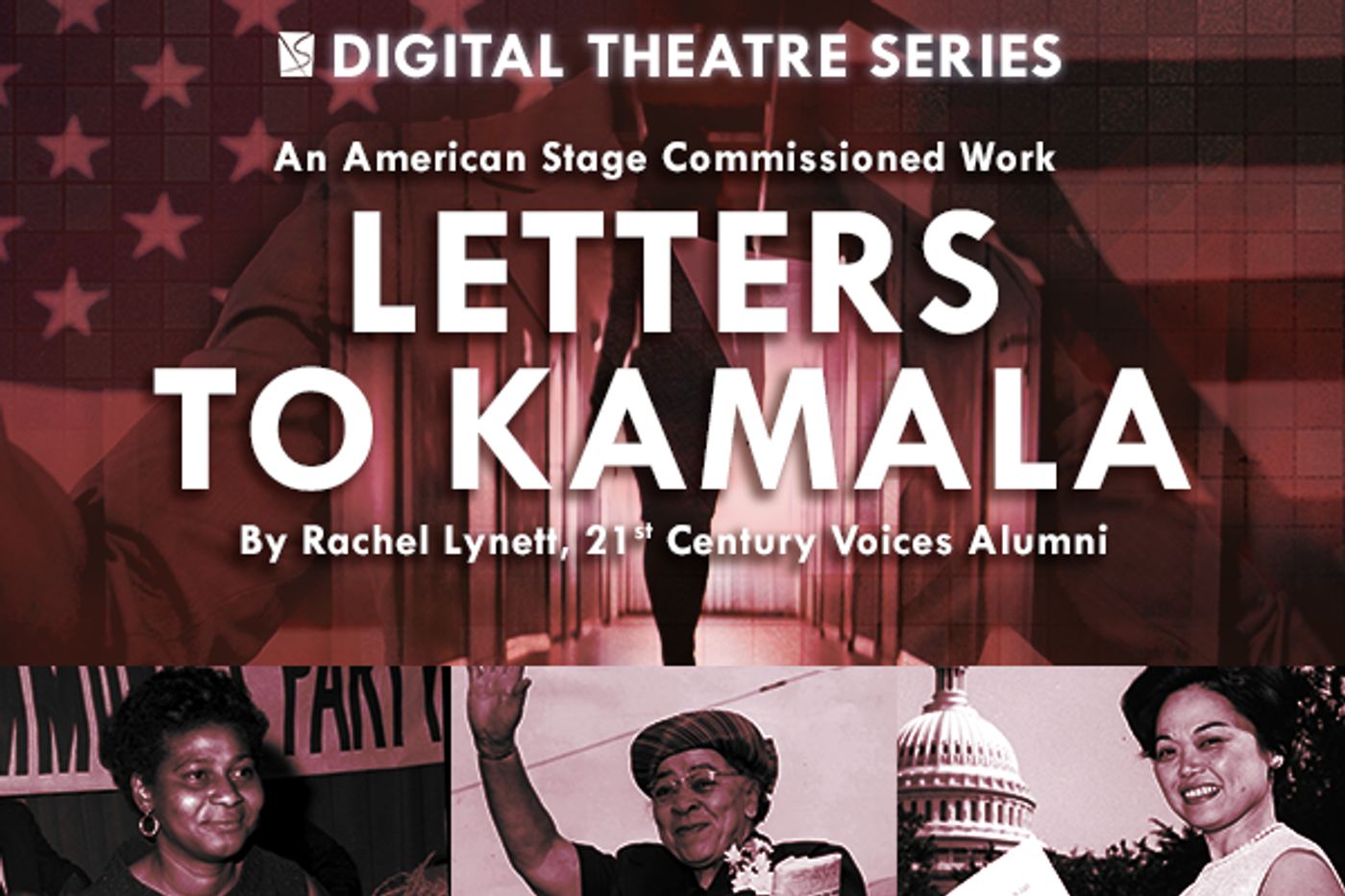Review: LETTERS TO KAMALA Challenges Racial Divide at American Stage
In the story, three historically important female figures appear to share with Kamala Harris advice, relying on their own experiences, and they pull no punches.

As I am holding my breath, waiting with a hopeful heart for America to begin the healing process, it seemed appropriate to review the final days of Rachel Lynett's Letters to Kamala running through Sunday at America Stage, from the comfort of my laptop. For the 2020/2021 Reimagine season, American Stage pivoted to adapt the performances for digital productions during the pandemic.
Commissioned by the theatre, the play posed the question, "how do you mend a country with a broken heart?"
The historical drama opened with newscasts of Kamala Harris as Biden's historic Vice Presidential pick and ended with her inspirational speech.
Lynett's writing was honest and heartfelt, yet by no means only an attagirl love letter to Harris.
In the story, three historically important female figures appear to share with Harris wisdom and advice, relying on their own experiences, and they pull no punches.
Expertly directed by Dawn Monique Williams, despite watching a recorded live production, the three actresses leaning forward into the camera felt like they were in the living room with me. It helped that the background transitions were seamless as the scenes changed and the characters evolved into another.
With a voice a smooth a silk, Dee Selmore played Charlotta Bass, the first African American woman to own a newspaper in the U.S. She wrote about such topics as police brutality, the Klan, and restrictive housing in 1912. She leaned into the camera and vowed that if she lived today, ".... I'd be writing about the same thing." She told the VP nominee that she was not the first black woman nominated for vice president; Bass was. She ran on the Progressive Party ticket in 1952.
She explained that she ran not to win but for change. My heart hurt when she explained everything that she accomplished and said resolutely, "my gravestone doesn't have my name on it."
Renata Eastlick, as Charlene Mitchell, a leader of the communist party in the U.S., fiercely answered the question with her own. "When did our country have a heart? When was America not broken?"
She recounted that slavery lasted 12 generations, that most black children born in 1940 were children of slaves, that it was not that long ago. It made me both saddened and furious, when because of overt racism still happening today, she stated, "There are still places in the South that I can't go."
Mitchell asked Harris what could she accomplish, what policies would she put in place if she didn't have to carry being a black woman on her shoulders?
The final counsel came from a regal Mia Tagano as Patsy Matsu Takemoto Mink, the first woman of color to be elected to the House of Representatives, first Asian-American woman to run in Congress, and the first Asian-American to run for president.
Mink did not hold back. She explained that men were called power-hungry and bold, while women were deemed bitches. She reminded Harris that civil rights only happened in the 60s and rebuked the current president's tagline. "America needs to be made great again? We have not been great." She said that the only way to mend a country with a broken heart is to listen to the pieces that splintered off.
Her chilling words reflected the current unrest in the U.S. "The country has always looked like this; we just never noticed."
Though these women never give Harris the answers, they challenge her to be someone who honors her ancestry, her history and creates a legacy and a path for others to follow.
I am reminded in that moment of two incredibly powerful words in the televised debate between Mike Pence and Kamala, words that reverberated back through the brave storylines of Mink, Mitchell, and Bass:
"I'm speaking."
Reader Reviews
Videos

